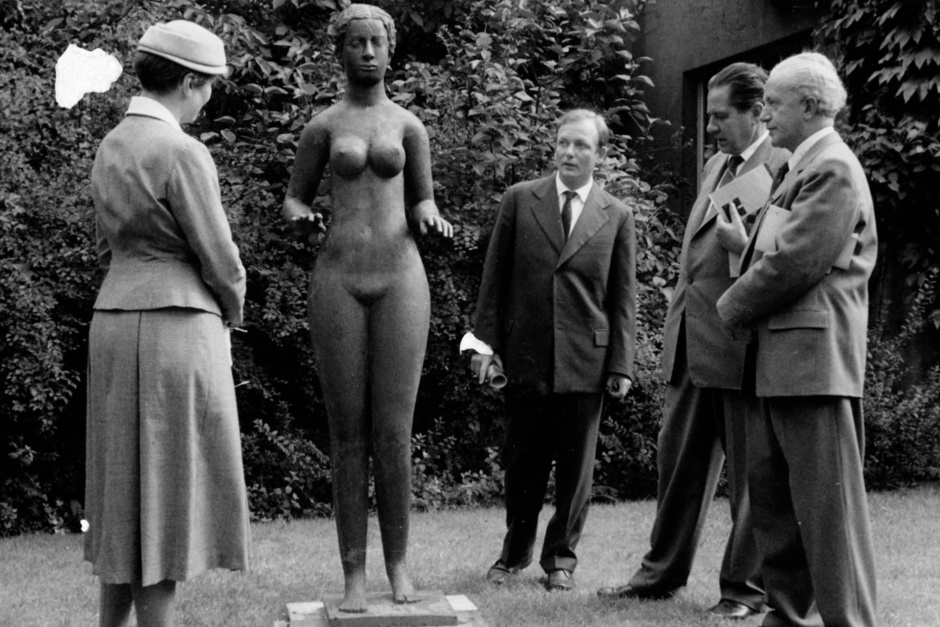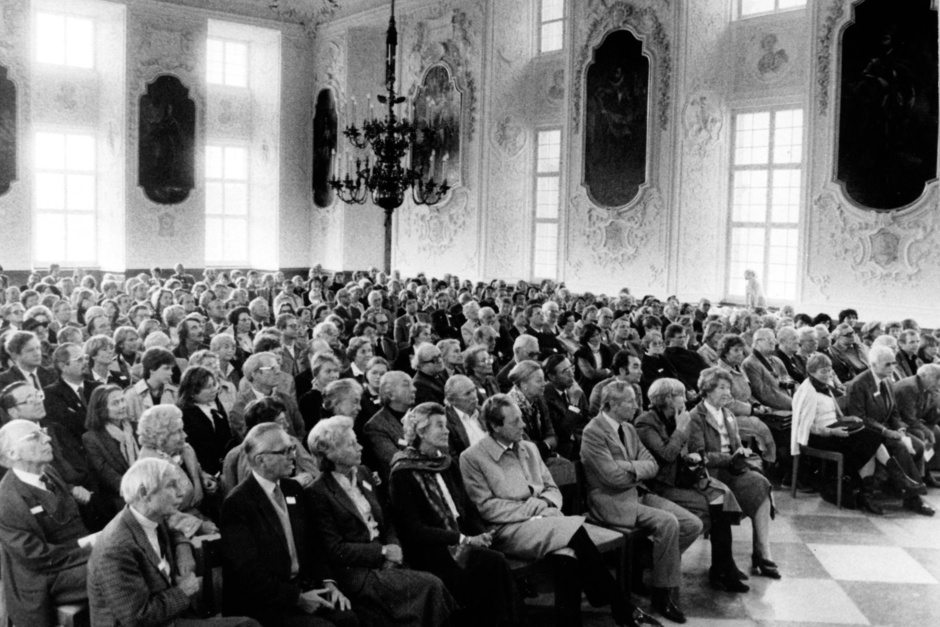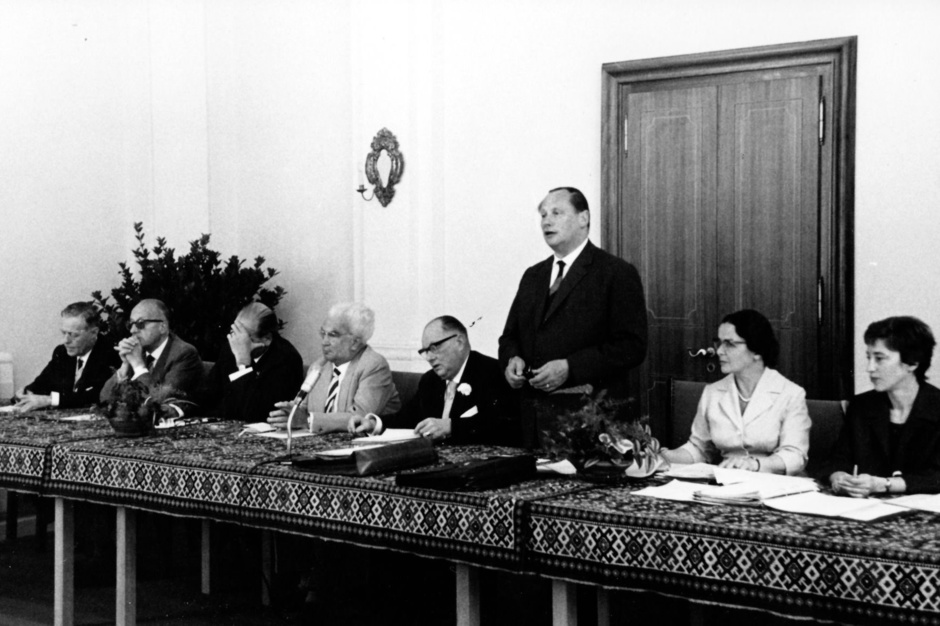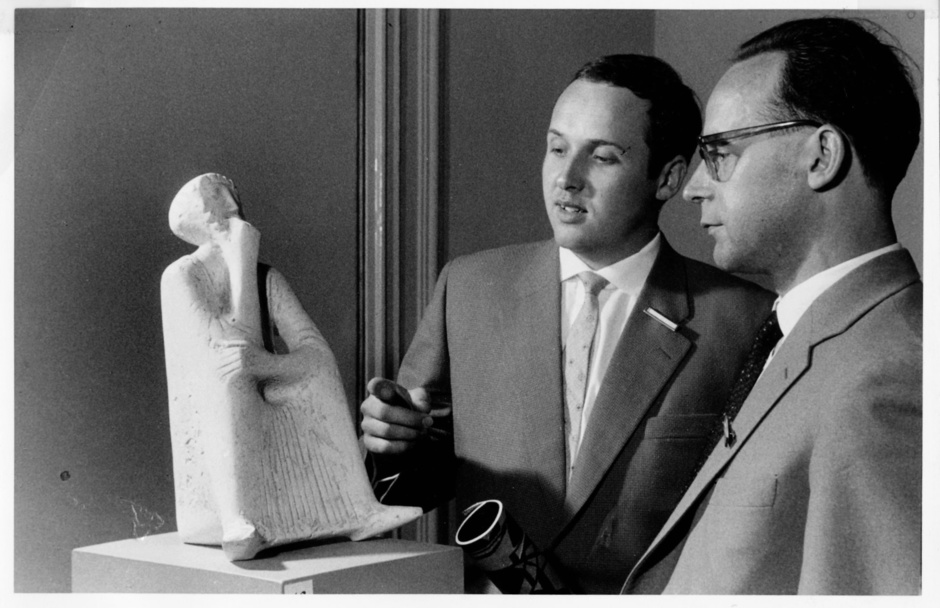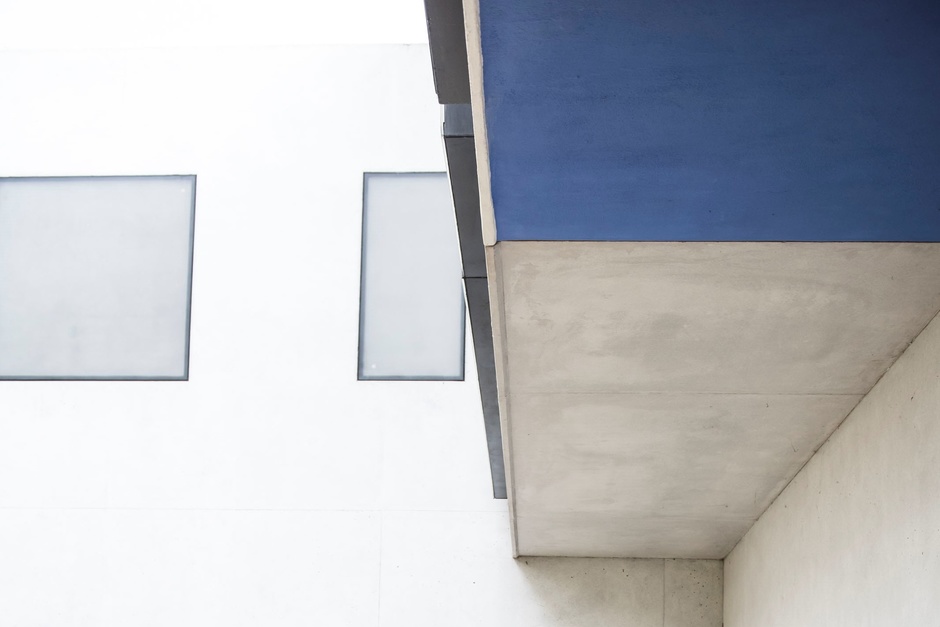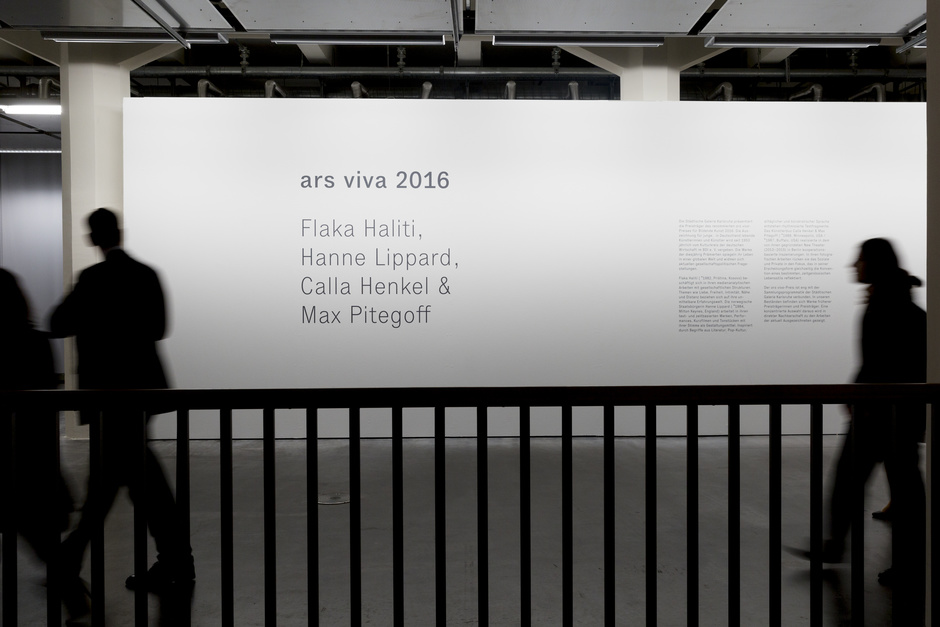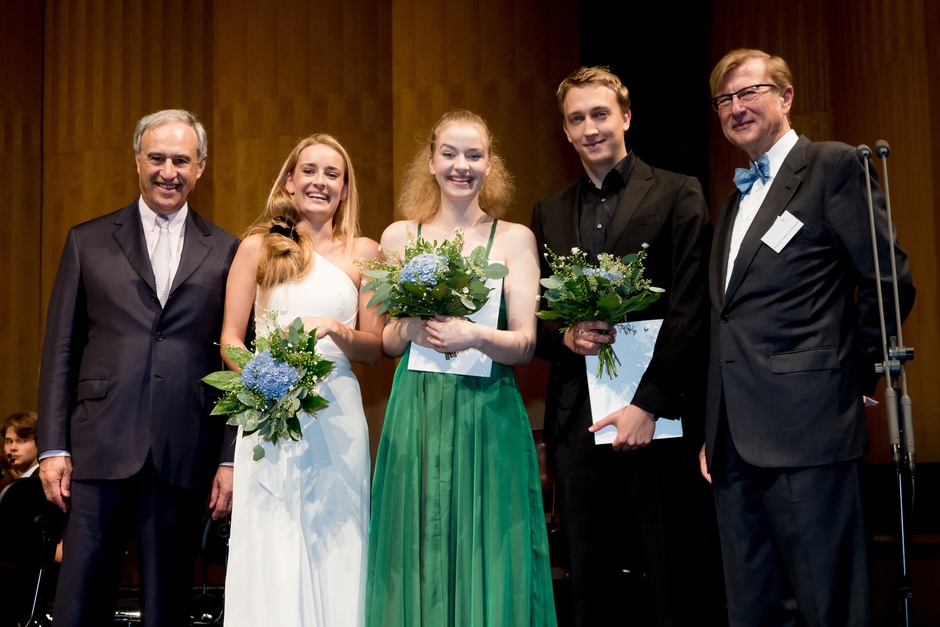In 1951, German industries joined together to form an independent organisation aiming to ensure and expand the free development of art and culture in Germany. Art and culture are basic needs of society. They are the essential preconditions for fruitful economic growth within a context of freedom and responsibility. (Excerpt from the Articles of Association)
The Kulturkeis im BDI e.V. (Association of Arts and Culture in the Federation of German Industries e.V.) was formed in Cologne in 1951. Theodor Heuss, President of the Federal Republic of Germany, was present at its founding, along with numerous figures from business and politics, including Gustav Stein (Founding Director) and Dr. Hermann Reusch (Founding Chairman). Since the founding board consisted of representatives from German industry associations that were organised under the umbrella of the BDI (Federation of German Industries), the Kulturkreis office was initially located within the BDI. It has, however, always been an independent institution with a separate staff.
As an alliance of companies and entrepreneurs, the objectives established during the founding years of the Kulturkreis still shape its activities today. These include the support of contemporary art, a commitment to significant works of German cultural history, and participation in discussions of cultural policy.
Supporting art and culture for seven decades
Since its founding, the Kulturkreis has provided support for more than 1,000 emerging artists. For many now world-renowned personalities in the arts, an award from the Kulturkreis was the first major recognition for their work. Former prize-winners have even gone on to become Nobel laureates.
In addition to supporting young artists, the Kulturkreis has initiated and implemented numerous groundbreaking cultural projects. In the 1950s, its "Museumsspende" (Museum Donation Project) enabled museums to purchase work for their collections. The Museum Folkwang in Essen was one of the first institutions to rebuild its collection with the assistance of the Kulturkreis; in 1958, it was followed by the newly established Lehmbruck Museum in Duisburg.
Early on, writers such as Ingeborg Bachmann (1955), Paul Celan (1957), Günter Grass (1958), Elias Canetti (1971), and Daniel Kehlmann (1998) were selected to receive awards in the area of literature. Musicians who have received support include Bernd Alois Zimmermann (1953), Sabine Meyer (1978), Tabea Zimmermann (1982), and Albrecht Mayer (1986). Among the recipients of the prestigious ars viva prize for visual arts are Marina Abramović (1982), Georg Baselitz (1968), Katharina Sieverding (1979), Thomas Ruff (1987), Wolfgang Tillmans (1995), Michael Sailstorfer (2006), Mariana Castillo Deball (2009), and Flaka Haliti (2015).
In 1963, the Kulturkreis formed the Foundation for Historic Regensburg as a means to conserve and renovate Regensburg’s historic city centre. This project became a model for urban restoration projects throughout Germany. In keeping with its basic principles, the Kulturkreis supported the construction of the Galerie für Zeitgenössische Kunst Leipzig (GfzK) between 1996 and 2006. Important works from the Kulturkreis collection were donated as a gift to the museum, while other artworks were sold to finance the construction of the building.
Recent history of the Kulturkreis
In 1992, the "Kulturkreis im BDI e. V." changed its name to the "Kulturkreis der deutschen Wirtschaft im BDI e. V." (Association of Arts and Culture of the German Economy in the Federation of German Industries e. V.). The office relocated from Cologne to Berlin in 1999, it moved into the newly constructed Haus der Deutschen Wirtschaft (House of German Industry) in the centre of the city. The Kulturkreis shares this space with central associations of German business: the BDI (Federation of German Industry), BDA (Confederation of German Employers’ Associations), and DIHK (Association of German Chambers of Industry and Commerce).
The Kulturkreis formed the Arbeitskreis Kultursponsoring (Working Group for Arts Sponsorship) in 1996, which was renamed Arbeitskreis Kulturförderung in 2017.
In 2004, the Kulturkreis created its cultural education programme, the Bronnbacher Scholarship - Cultural Competence for Future Business Leaders, which is currently conducted in cooperation with the University of Mannheim and the Karlsruhe Institute of Technology (KIT) for select students from both institutions.
Since 2006, the Kulturkreis has awarded the Deutscher Kulturförderpreis (German Arts Sponsorship Award) in partnership with Handelsblatt, honouring companies and corporate foundations across Germany that have demonstrated cultural commitment.
The Working Group for Corporate Collecting was initiated in 2010 to connect companies that collect art.
In 2016, the former committees for Literature and Performing Arts merged into the new Literature Committee, which awards the “Text & Language” literature prize to support young artists. Starting in 2024, the prize will be awarded under the title “Literaturpreis der deutschen Wirtschaft”.

